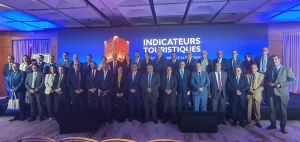In October 1988, back when 70% of today’s living Africans were not even born, a group of Ministers of Civil Aviation from various African countries met in Yamoussoukro, the capital of Cote d’Ivoire. They came away with a groundbreaking document, a vision to liberalise the African aviation industry. This came to be known as the “Yamoussoukro Declaration on a New African Air Transport Policy”.
It took another decade before this vision translated into commitment, but on 14 November 1999, 44 African nations signed up to the “Yamoussoukro Decision” (YD), a set of commitments to ensure that the vision of 1988 came to fruition. Fundamental to this was the empowerment of the Dakar based African Civil Aviation Commission (AFCAC) as the executing agency.
Come November 2022, the same AFCAC has just launched a “Pilot Implementation Project” for the same YD, 34 years after the initial declaration. The YD itself had already been rebranded in 2018 as the Single African Air Transport Market (SAATM), a fancy (and easier to spell) name to distract people away from the lack of progress made over three decades. In comparison, the European Union, who began to implement the first stage of a common aviation market in December 1987, had completed the process by April 1997, taking less than 10 years to finish what was taking their African counterparts over 30 years to even begin.
AFCAC seems to have fallen victim to the old adage that if you lower expectations enough, mediocrity begins to be seen in a positive light. Their new Secretary General, Adefunke Adeyemi, has a background in industry rather than bureaucracy, which may provide the agency with a last chance to salvage relevance and live up to the immense responsibilities vested in it. AFCAC is uniquely positioned to threaten and implement sanctions against states that do not live up to their treaty obligations under YD / SAATM. The carrot and stick approach can bring about change and transform the African aviation market.
The rush towards mediocrity as a standard is not unique to AFCAC by any means. Nearly five years after the African Union adopted the Protocol on Free Movement of Persons, African citizens still need advance visas to visit nearly 60% of their continental neighbours. Leaders pay lip service to opening up borders to facilitate tourism and trade, but actual policy remains rooted in the legacy post-colonial culture of bureaucracy and borderline xenophobia. It is never acceptable that a non-African should be more welcome in an African country than a citizen of Africa itself.
Other African countries have attempted to implement eVisa systems to smooth things out for prospective travellers.
While well-meaning in concept, these are often unfit for purpose. Some require upload of documents that are difficult to obtain such as notarised invitation letters from local sponsors, others make it difficult to make payment of application fees online, and yet others delay processing visas until long after proposed travel dates have passed. South Africa’s much-vaunted eVisa system is particularly noteworthy for taking 6 months or longer to process visitor visa applications, with the consequent negative impact as travellers simply cancel their plans in frustration.
Mediocrity should never be viewed as an acceptable end result. African states have developed frameworks to open up the continent but have fallen short when it comes to implementation. Let’s hope that 2023 can provide the impetus for improvement in these areas.
Author: Sean Mendis
Sean Mendis has two decades of experience in senior management roles within the aviation sector in Africa. He is presently based in Malawi, where he offers executive-level consulting and intelligence to aviation stakeholders.
This article was first published in the December Issue of VoyagesAfriq Travel Magazine.








